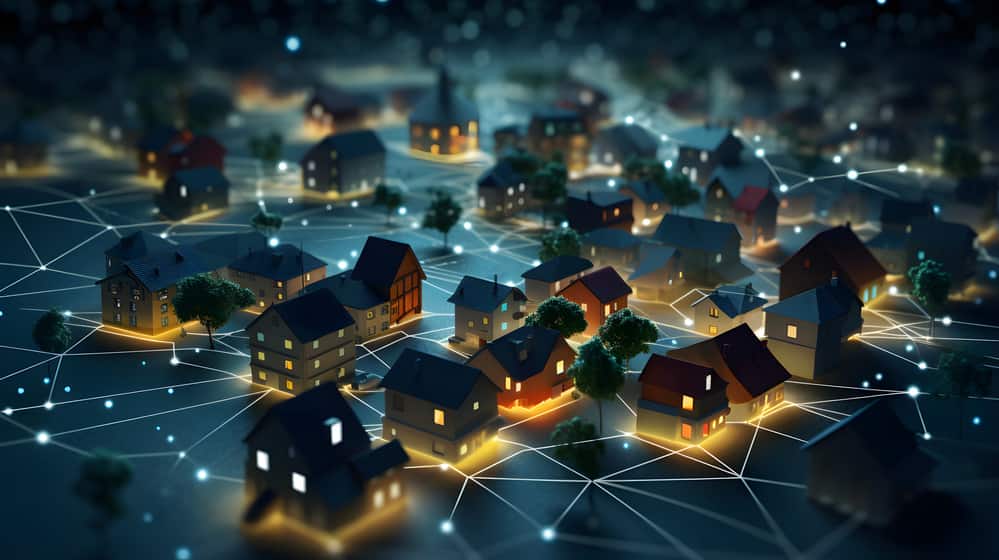The idea of smart cities has come to light as a way forward for creating sustainable, efficient, and hospitable cityscapes in an age characterized by increased environmental concerns and fast urbanization. At their core, smart cities embody the fusion of innovation and urban planning, offering a glimpse into a future where technology transforms the way we live, work, and interact with our surroundings.
Core Technologies Powering Smart Cities
At the heart of the smart city revolution lies a suite of transformative technologies, each playing a pivotal role in reshaping urban landscapes. The Internet of Things (IoT) serves as the nervous system of smart cities, connecting a myriad of devices and sensors to collect real-time data on everything from traffic flow to air quality. Artificial Intelligence (AI) algorithms analyze this data to derive actionable insights, optimizing city operations and enhancing decision-making processes. Big data analytics unlock the potential of vast troves of information, enabling predictive modeling and personalized services tailored to individual needs. Blockchain technology ensures the integrity and security of data exchanges, fostering trust and transparency in smart city ecosystems.
Across the globe, cities are harnessing these technologies to revolutionize urban living. In Singapore, IoT sensors monitor everything from waste levels to energy consumption, enabling proactive maintenance and resource allocation. Barcelona utilizes AI-powered traffic management systems to alleviate congestion and reduce emissions, improving both mobility and air quality. Amsterdam leverages big data analytics to optimize its public transportation network, enhancing efficiency and accessibility for residents and visitors alike. These examples illustrate the transformative impact of technology on urban infrastructure, services, and sustainability.
Benefits of Smart Urban Evolution
The benefits of smart cities are manifold, encompassing both tangible improvements in city management and intangible enhancements to quality of life. By leveraging real-time data and AI algorithms, smart cities can optimize resource allocation, reduce waste, and minimize environmental impact, thereby promoting sustainability and resilience in the face of climate change. Enhanced public safety and security systems, empowered by IoT sensors and predictive analytics, ensure the well-being of residents and visitors, fostering a sense of trust and community cohesion. Moreover, smart cities have the potential to foster more inclusive and accessible urban environments, bridging the digital divide and empowering marginalized communities through innovative solutions.
Challenges and Considerations
Despite their transformative potential, smart cities also face a myriad of challenges and ethical considerations. Data privacy and security concerns loom large, as the proliferation of IoT devices and data collection mechanisms raises questions about the ownership and protection of personal information. Moreover, the digital divide threatens to exacerbate existing inequalities, as marginalized communities risk being left behind in the race towards urban innovation. To address these challenges, smart cities must prioritize community engagement and transparent governance, ensuring that all stakeholders have a voice in the decision-making process and equitable access to technology’s benefits.
Global Case Studies
A closer look at global case studies reveals the diverse array of smart city initiatives taking shape around the world. From the comprehensive urban renewal projects of Songdo, South Korea, to the innovative transportation solutions of Helsinki, Finland, these examples offer valuable insights into the possibilities and pitfalls of smart urban evolution. By studying successful implementations of smart city initiatives, urban planners and policymakers can glean valuable lessons and best practices to inform their own strategies for sustainable development and innovation.
The Future of Urban Living
Looking ahead, the future of smart cities holds boundless potential for innovation and progress. Emerging technologies such as 5G networks, autonomous vehicles, and renewable energy solutions promise to further revolutionize urban landscapes, offering new opportunities for connectivity, efficiency, and resilience. Yet, amidst this technological upheaval, the role of citizens remains paramount. By fostering participatory design and decision-making processes, smart cities can harness the collective wisdom and creativity of their residents, ensuring that urban development remains human-centric and inclusive.
Conclusion
In conclusion, the evolution of smart cities represents a paradigm shift in urban living, driven by the transformative power of technology and innovation. By embracing the promise of smart urban evolution, cities can chart a course towards a future that is not only efficient, sustainable, and livable but also equitable and inclusive. As we navigate the challenges and opportunities of urbanization in the 21st century, let us seize the opportunity to shape our cities for the better, engaging with the ongoing evolution of our urban environments and working together to realize the vision of smart, resilient, and vibrant cities for all.





